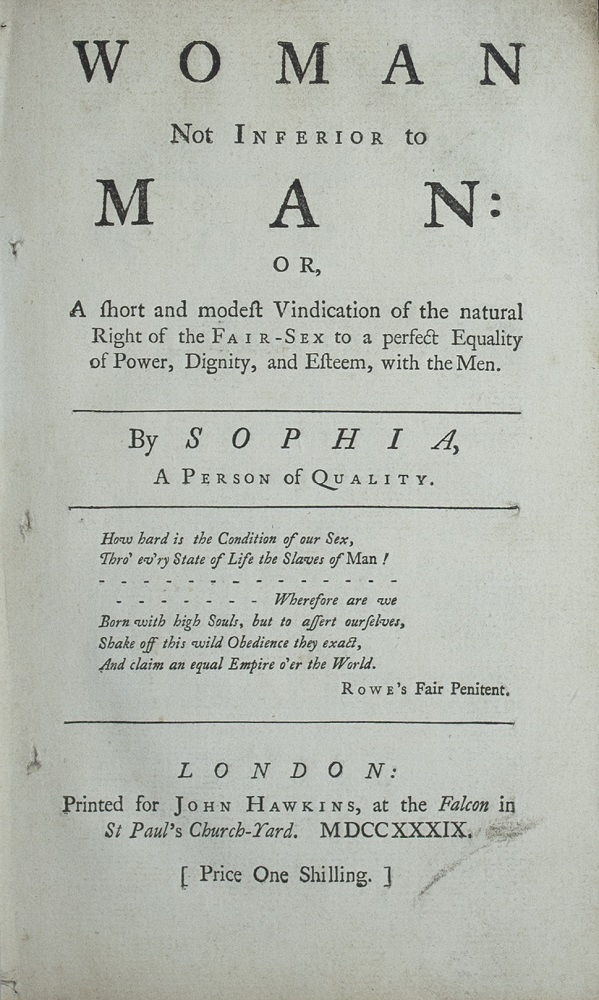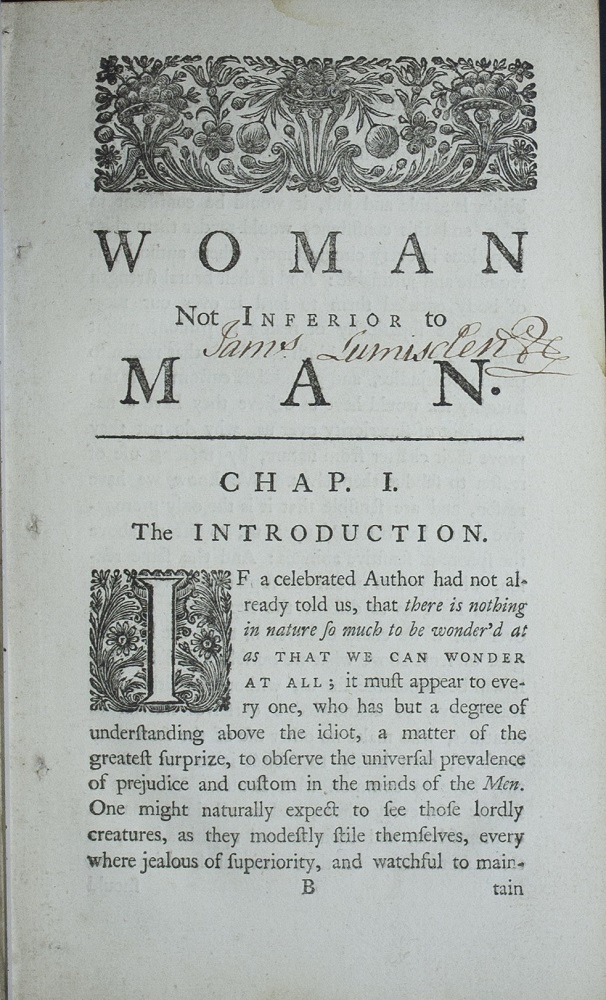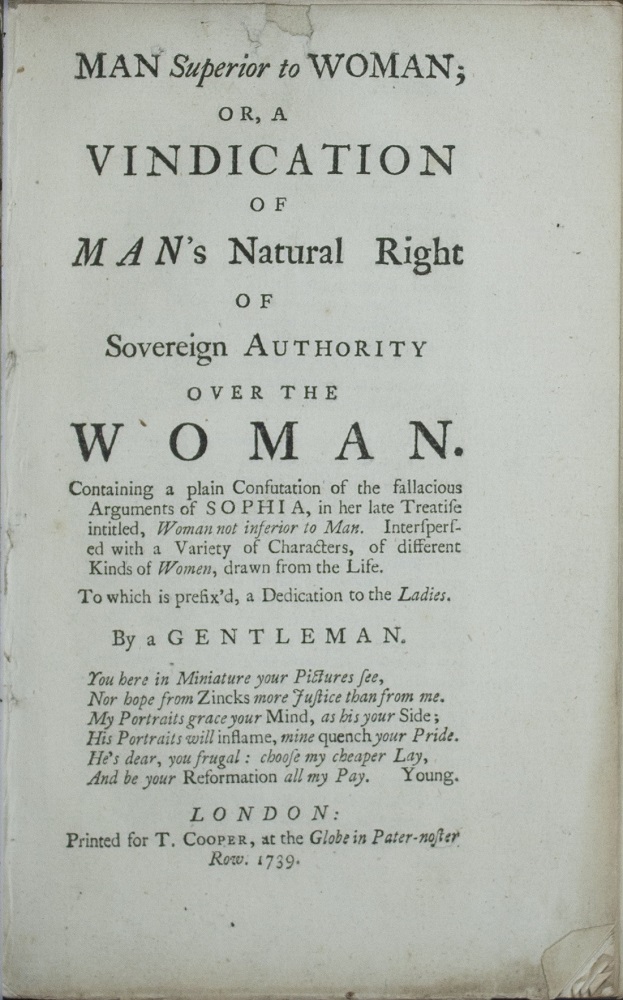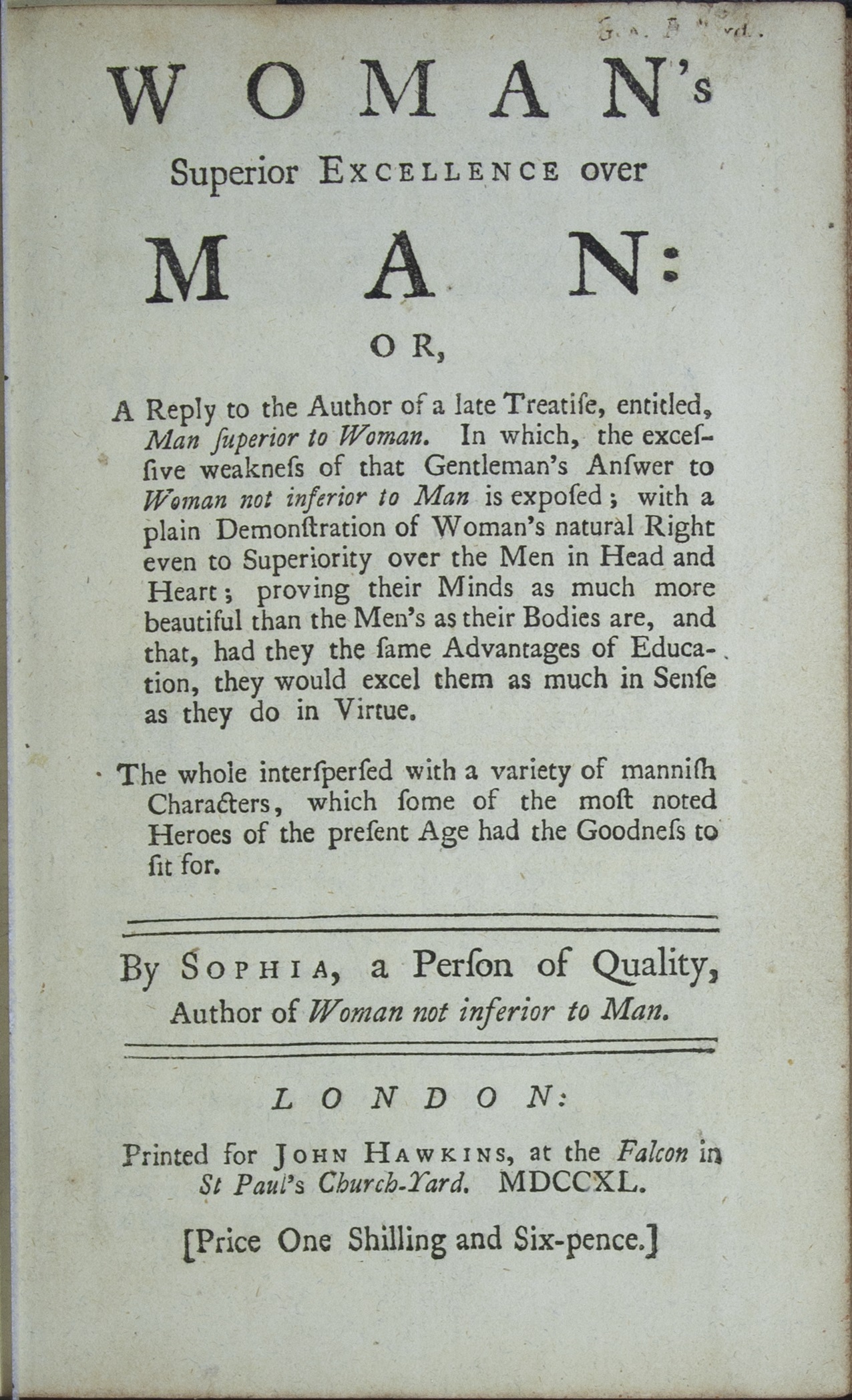Highlights from the Marguerite Hicks Collection: Sophia (1739-1740)
Sophia is the pseudonym of an 18th-century British woman who wrote a series of pamphlets affirming women's equality with men.

On November 22, 1739 she published "Woman Not Inferior to Man: Or A Short and Modest Vindication of the Natural Right of the Fair-Sex to a Perfect Equality of Power, Dignity, and Esteem, with the Men."
The pseudonymous tract attracted immediate attention.
Soon a response entitled "Man Superior to Woman" appeared, to which Sophia responded with "Woman's Superior Excellence Over Men" (1740).
Sophia's polemical tracts appeared at the same time as other pre-feminist writings such as: Mary Collier's The Woman's Labour, and Lady Montagu's "The nonsense of Common Sense" magazine. They were a great success.
The pamphlets were reprinted several times, separately as well as together under the title Beauty's Triumph (1751).
Today, for their audacity they are widely seen as the epitome of pre-feminist ideas (Leduc, 14).


Who was Sophia?
In her own terns, she was "a person of quality" and "a young lady".
Speculation started immediately upon publication of her first tract, but her true identity was never revealed.
Scholars have offered several hypotheses, including that Sophia was actually a man, and that the author of the third pamphlet was a different person (Leduc, 17).
We only know that she (?) was a highly educated person, because her writings rely extensively on 17th-century thinkers, especially Francois Poulain de la Barre's Equality of Both Sexes (1673).

In defense of women
Sometimes witty and sarcastic, Sophia's texts affirm that women are born equal to men and that the only things restraining women are prejudice, tradition and convention.
Sophia even challenges men's traditional authority over women - calling men "the arrogant sex.".
With the proper education, Sophia argued, women could easily rival men's achievements.
They could hold public positions in civil or even military affairs. In short, they could govern themselves.

A Gentleman pushes back
In his reply to Sophia, the "Gentleman" takes up her claims and attacks them.
He employed traditional mysogynous arguments, borrowing heavily from ancient writers.
Most scholars believe the "gentleman" is in fact none other than Sophia herself -- or at least that the 2 pamphlets were written by the same person.
Such a polemical format was used at the time, including by Poulain de la Barre.

Sophia has the last word
Woman's Superior Excellence Over Men, which is twice as long as the first tract, is indebted to Poulain and other 17th-century writers.
Sophia uses their arguments to denounce men's attitude toward women, women's subjugation, and men's moral failings.
She emphasizes the injustice of women' submission and again reaffirms their rights -- this time going as far as asserting the superiority of their souls, minds, and bodies.
Sources
Guyonne Leduc, "The Stylistic Desacralization of Man in Britain in the [Sophia] pamphlets, 1739-1740," in Dynamics of Desacralization, ed. Paola Partenza (Goettingen: V & R Unipress, 2015), p. 13-35
Myra Reynolds, The Learned Lady in England, 1650-1760, p. 313-315
"Sophia (1739-1741)," in First Feminists: British Women Writers, 1578-1799, ed. Moira Ferguson (Bloomington: Indiana University Press, 1985), p. 266
Exhibit prepared by Dominique Daniel, March 2019
In providing access to its collections, the Oakland University Archives and Special Collections acts in good faith. Despite the safeguards in place, we recognize that mistakes can happen. If you find on our website or in a physical exhibit material that infringes on an individual’s privacy, please contact us in writing to request the removal of the material. Upon receipt of valid complaints, we will temporarily remove the material pending an agreed solution.




